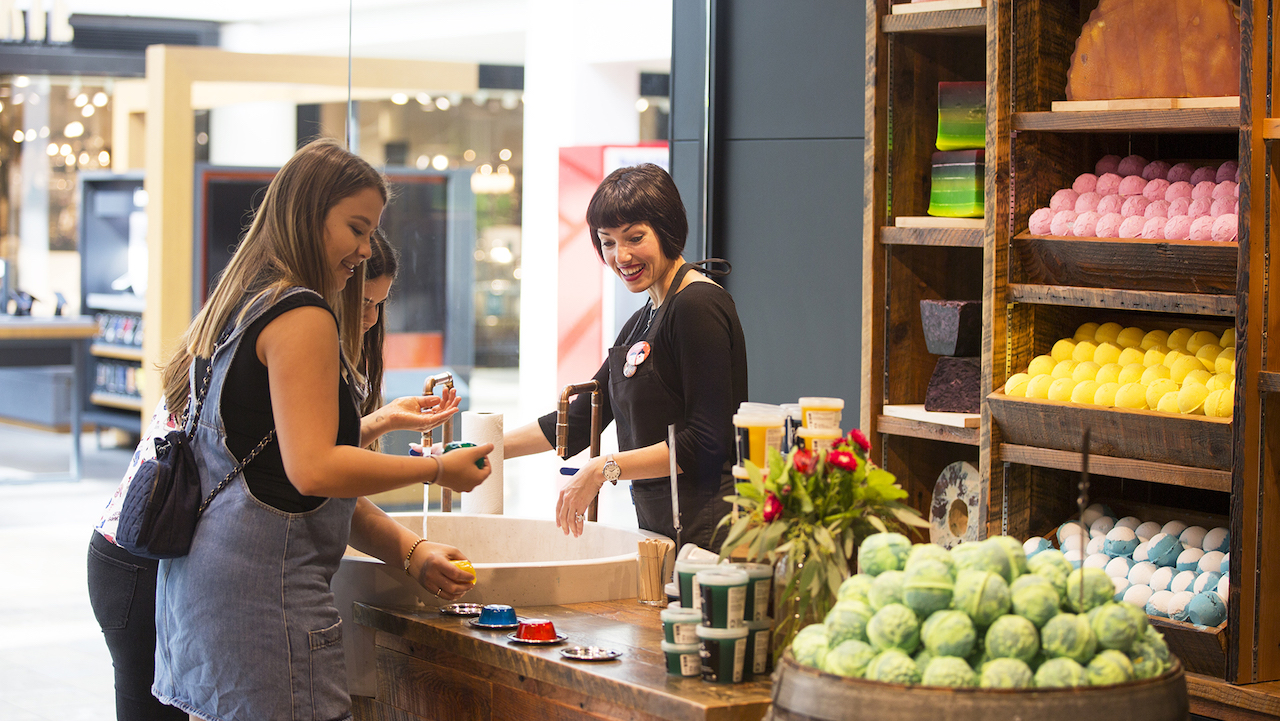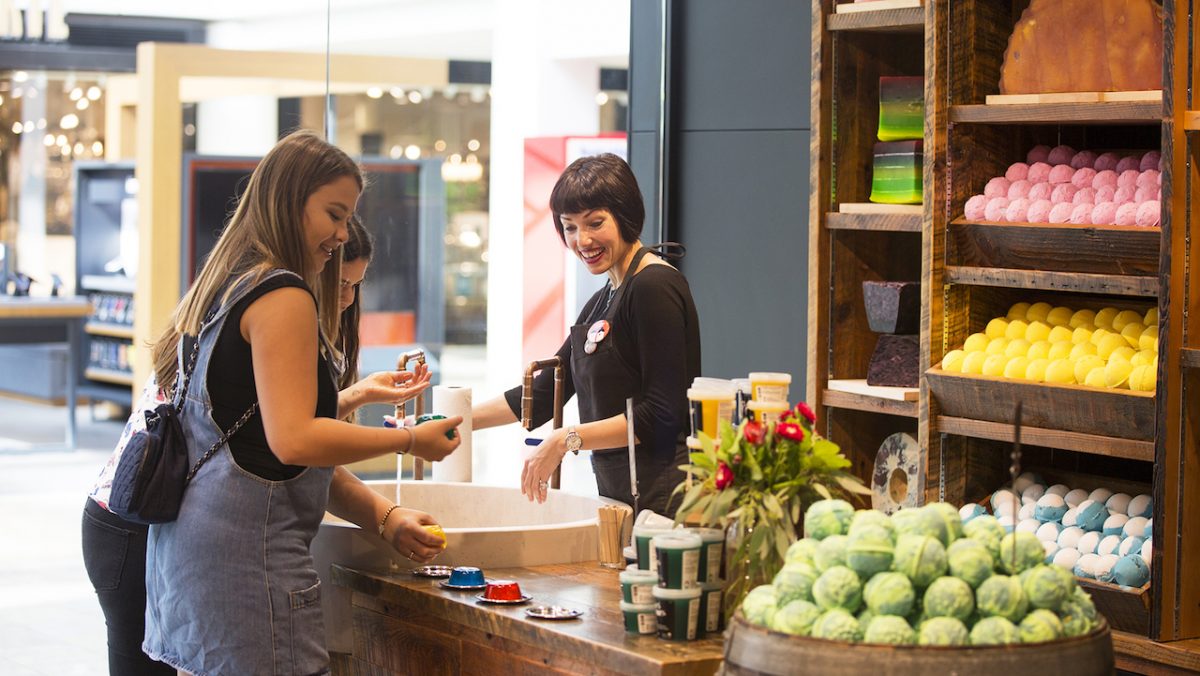
As the push to improve the in-store experience continues in beauty retail, British beauty brand Lush Cosmetics has taken to an operational approach: improving communications and messaging with its store teams.
In May, Lush implemented a workflow platform that streamlines daily communications from headquarters to store managers and associates, in a Skimm-like manner, for its 8,100 store employees in 248 North American locations. In the first six months, Lush Cosmetics has projected approximately $1 million annual cost savings in manager labor and 100 percent readership across its fleet, according to Lush Cosmetics retail communications program manager Lindsay Nelson. Prior to this, the beauty brand relied exclusively on a company intranet and headquarter voicemails and emails to message store campaigns and product launches.
“We wanted to understand how communication to our stores could be streamlined and up efficiency on the retail floor,” said Nelson, who has implemented daily communications, but also push notifications for more timely initiatives, like merchandising or training instructions. More recently, those instructions have been largely around Lush’s holiday gifting push and visual merchandising.
This is in step with what’s happening across beauty, from Sephora integrating its Sephora Virtual Artist franchise and showcasing a digital hub in physical locations to Ulta launching digitally native brands in many of its 1,163 stores.
The new initiative is through a partnership with augmented operations app Zipline, of which Lush Cosmetics is its only beauty partner. (The platform comes out of stealth on Thursday and works with a host of other brands including Cole Haan, Toms, and Gap Inc.’s Gap, Banana Republic, Athleta, Intermix and Old Navy — Zipline helped save Old Navy $20 million this year by improving employee engagement and productivity, according to analyst firm Gartner). While efficient communications has remained top of mind for Lush, both companies have noticed the importance of creating “compelling storytelling” within these blasts, said Melissa Wong, CEO and co-founder of Zipline.
“Far and away, the associates that work at Lush care deeply about the product and need to be invested in the messaging,” said Wong. One example is when Lush incorporated Ariana Grande’s “God Is a Woman” music video into daily communications with store teams, in conjunction with its Goddess bath bomb inspired by the singer. “We want to understand our audience and the demographic of the people working in our shops, who are young and mobile,” added Nelson of the October push. “The content has to feel light, fun and engaging for them, even if it is still operational information.” This directive mirrored the social media frenzy of the Goddess bath bomb, which had Grande herself tweeting about the brand and product. A single post by the musician has garnered over 13,000 likes on Twitter.
Though Lush Cosmetics would not disclose a sales lift from the partnership, it emphasized the importance of “brand love” in today’s challenging retail environment. This ties to larger consumer and brand trends, as a recent Accenture Strategy report noted that 66 percent of consumers are attracted to brands with strong company culture, and this affects purchasing behavior.
This continues to be important in beauty retail, especially, added Wong. “Beauty has a more specialized role in retail with a faster pace of change and more products that need to flip over night. To better educate associates better educates consumers,” she said. “It’s the only way to improve before bottom line and business.”

